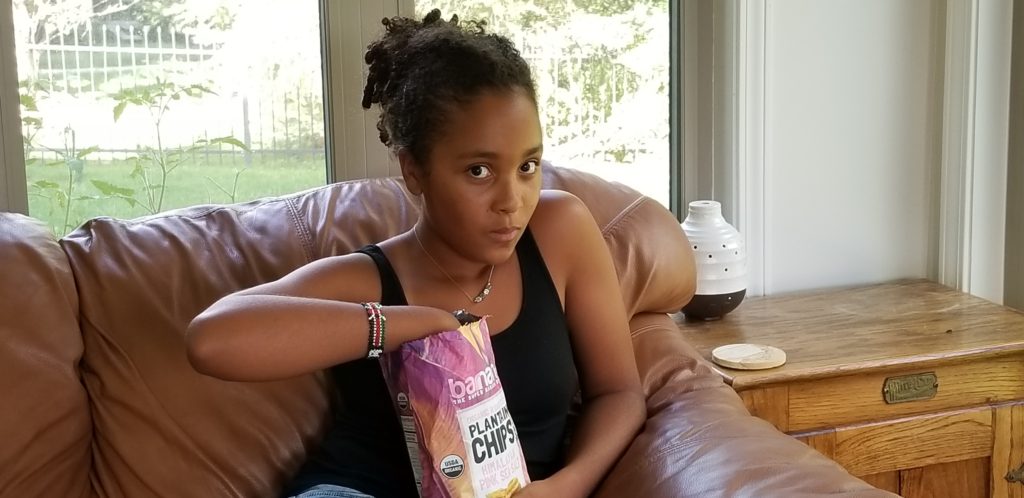Does fasting help or hurt weight loss? What’s the right way to fast? What if I don’t even want to fast because it’s so uncomfortable? Let’s answer all these and more in this week’s post…
Fasting. It’s the “new” thing and it seems like everyone has an opinion about it. It used to be that the common advice was to eat every few hours to stimulate the metabolism, and if you went too long between eating occasions that your metabolism would grind to a halt and you’d be doomed to gain weight forever. Ok, I’m being dramatic. But isn’t it interesting how the philosophies behind weight loss can totally contradict each other and still be so popular?
Fasting is in now. And folks either love it or hate it. Some swear that it’s the thing that made weight loss work for them, while others say it made no difference. There’s another group who refuses to try it at all – waiting an extended period of time to eat is too hard, too intimidating, too painful to try. Hangry, anyone?

Whether you love it or hate it, fasting isn’t new. As a spiritual practice, fasting has been around forever. Even as a normal eating pattern, in the 1950s most people didn’t eat after 6 pm dinner to 7 am breakfast (a 13 hour fast). That’s even where the word “breakfast” comes from.
I used to be terrified of fasting. Every time there was a mention of fasting – in the bible, at church, in popular media for weight loss, I resisted the idea. That resistance came from my fear of hunger. I spent most of my life trying to avoid hunger, so much so that when I started looking for hunger to lose weight the sensation was unfamiliar. Still, my mind thought it was something to stay away from. So when I finally allowed hunger to be the reason to eat and I started losing weight, it was a complete overhaul of my thinking around food and all the other reasons I’d learned to eat.
Fasting is a direct challenge to those thoughts. If you want to know what your brain thinks about food, stop eating and tune in. You’ll be able to watch your brain do gymnastics to try to get you to eat! Even more than 14 years after losing my weight, I can still see some of the old patterns of thinking around food come up when I fast. Let me tell you a story…

Recently I got an email that the church was going to fast on a particular day. Now, I read the email and decided that it was something I wanted to participate in, so I planned to join the fast. It was only one day and the fast from dinner the night before to dinner the day of the fast. I was in the office seeing patients that day, so I packed my water bottle and headed in.
Now, in my office, I have snacks for “emergencies” in my desk drawer. I have Kind bars and small squares of caffeinated chocolates and a container of organic roasted cashews that my nurse gave me for Doctor’s Day. Since I rarely have a food “emergency” the snacks usually just sit there and I give them away if one of my nurses or colleagues is hungry.
It was a busy day as usual. You’d think that I wouldn’t have much time to worry about the fast – but my brain was very busy thinking about the food I’d already decided not to eat. Every time I came back from seeing a few patients to sit at my desk and chart, my brain would suggest that I eat something. A couple of cashews, a square of chocolate, something. But here’s the kicker: I wasn’t actually hungry. The vast majority of the time that my brain offered me a snack as a solution, it wasn’t for hunger. It was to solve irritation, or boredom, or as a reward or a break. I could be sitting down for two minutes to close a chart and my brain would suggest a snack. Once I realized that my mouth was dry because of the mask and what I needed was water – but my brain suggested a snack for that too. It was fascinating to watch how many times my brain would offer food as an option to solve problems that weren’t hunger. Of course, as the day went on, I had more episodes of actual hunger, but most of the time I thought of eating wasn’t related to being hungry. Fasting was a great tool to see my mind!

If you want to see what you really think about food, try fasting. You’ll see all the reasons your mind wants to give you to eat because you say no! The mind will keep trying because of the no. If you pay attention, you can see the mind work even when you’re not fasting, but the fast is a powerful tool to take the distraction of eating food away.
Learning to see the mind at work is a practice, especially if you’ve been eating for reasons other than hunger as most of us have learned to do over the years. Untangling all the reasons why we eat and changing the thinking around them takes work, but it can be done! But if you’ve been trying and struggling, you don’t have to do it alone. I’m here to help! If you want me to coach you to master your mind and successfully lose your weight, email me at drandreachristianparks@gmail.com and request a consultation with me. We can conquer your weight battle together!
Here’s your video help for the week!
